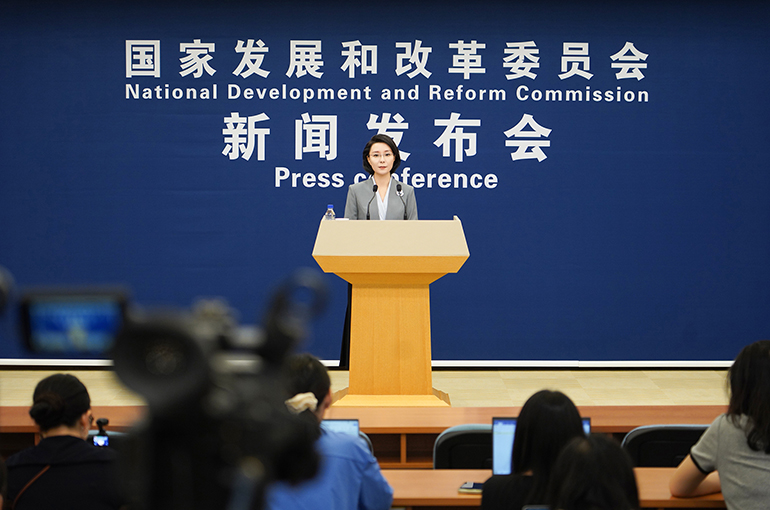Select Language:
China has introduced a new policy-based financial tool valued at 500 billion yuan (approximately $71.4 billion) designed to better align financial resources with the real economy and promote productive investments.
The funds from this initiative, discussed during a late-April meeting of the Political Bureau of the Central Committee, will be used to supplement project capital. A spokesperson for the National Development and Reform Commission explained at a press conference that this measure aims to strengthen project funding sources.
Experts estimate that this financial instrument could unlock around 6 trillion yuan (roughly $842.8 billion) in total investment, representing about 24% of the total infrastructure investment posted last year. Once the policy is implemented, it is expected to increase infrastructure investment growth by three to four percentage points annually over the next three years.
If rolled out within the current quarter, optimistic projections suggest it could stimulate approximately 4.4 trillion yuan in overall credit expansion. This physical workload is anticipated to elevate infrastructure investment by about 2 percentage points within the year.
The financial tool will prioritize key sectors such as digital economy, artificial intelligence, low-altitude economy, consumer infrastructure, green and low-carbon initiatives, agriculture and rural development, transportation and logistics, as well as municipal and industrial park projects, based on information from various regions.
This policy is seen as a strategic move to encourage effective investments amid efforts to resolve local government debt issues. It aims to address the challenge of insufficient capital for project development, according to industry analysts.
There is a tendency for the instrument to favor private companies, especially since private sector investment in China declined by 2.3% over the first eight months of the year compared to the previous year — marking the third consecutive month of decline.
Further initiatives to promote private investment will focus on expanding opportunities for private capital and supporting investments in innovative productive forces, emerging service industries, new infrastructure, and other high-growth areas, a government official highlighted.
Private firms play a crucial role in driving artificial intelligence innovation and are at the forefront of practical applications. The authorities plan to implement multiple measures to encourage their participation in the ongoing “AI+” initiative.







